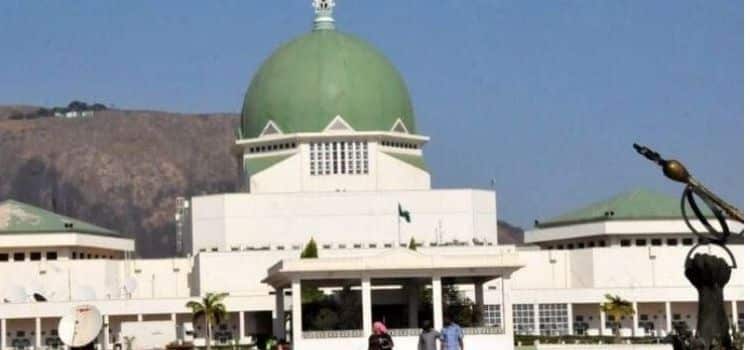President of the Senate, Ahmad Lawan, on Monday, said that revenue generating agencies of government are capable of generating and remitting N3 trillion naira annually to the coffers of the federal government if efforts are made to cut down on wasteful spendings.
Lawan made this known in an address delivered to declare open an interactive session “on the need to improve internally generated revenue of the Federal Government of Nigeria and Revenue Projections of the Agencies as Contained In the Appropriation Act 2022.”
The Senate President, in his speech, said the purpose of the meeting is to explore means of increasing government revenues.
According to him, The National Assembly will go tough on increased revenue to cut down on the country’s budget deficit and borrowings, as well as prevent wasteful expenditures by agencies of government.
He assured that the upper chamber would provide the needed support through legislation to ensure that revenue agencies perform to meet and surpass their targets.
Lawan explained that the drive by the upper chamber for more revenues to the coffers of government, would enhance the economy and facilitate infrastructural development.
Chairman senate Committee on Finance, Senator Solomon Olamilekan in his lamented that there is insufficient funds for the implementation of policies and projects captured in the 2022 budget of the federal government.
Also Read: National Assembly forwards reworked electoral bill to Buhari
He explained that the funds were derived partly from the revenue generated by the government owned enterprises and other independent revenues sources of the federal government.
According to the lawmaker, “there is an urgent need for all hands to be on deck on revenue generation for government, as well as prevent misuse and leakages of such revenue for frivolous purposes not sanctioned by the laws of the National Assembly.
Revenue agencies present at the interactive session include: National Agency for Science and Engineering Infrastructure, the Federal Inland Revenue Service (FIRS), National Steel Raw Materials Exploration Agency, Nigerian Postal Service, Lagos University Teaching Hospital, and Nigeria Customs Service.
Others are the Nigeria Immigration Service, Nigeria Security and Civil Defence Corps, Nigeria Prisons Service, Maritime Academy of Nigeria, National Agency for Food and Drug Administration and Control (NAFDAC), and Abuja Geographic Information Systems (AGIS).
Also present are the Federal Capital Territory Administration, Energy Commission of Nigerians, Administrative Staff College of Nigeria, Nigerian Export Import Bank (NEXIM), Nigerian Ports Authority and the Nigerian College of Aviation Technology, Zaria.
(Editor: Omor Bazuaye)








